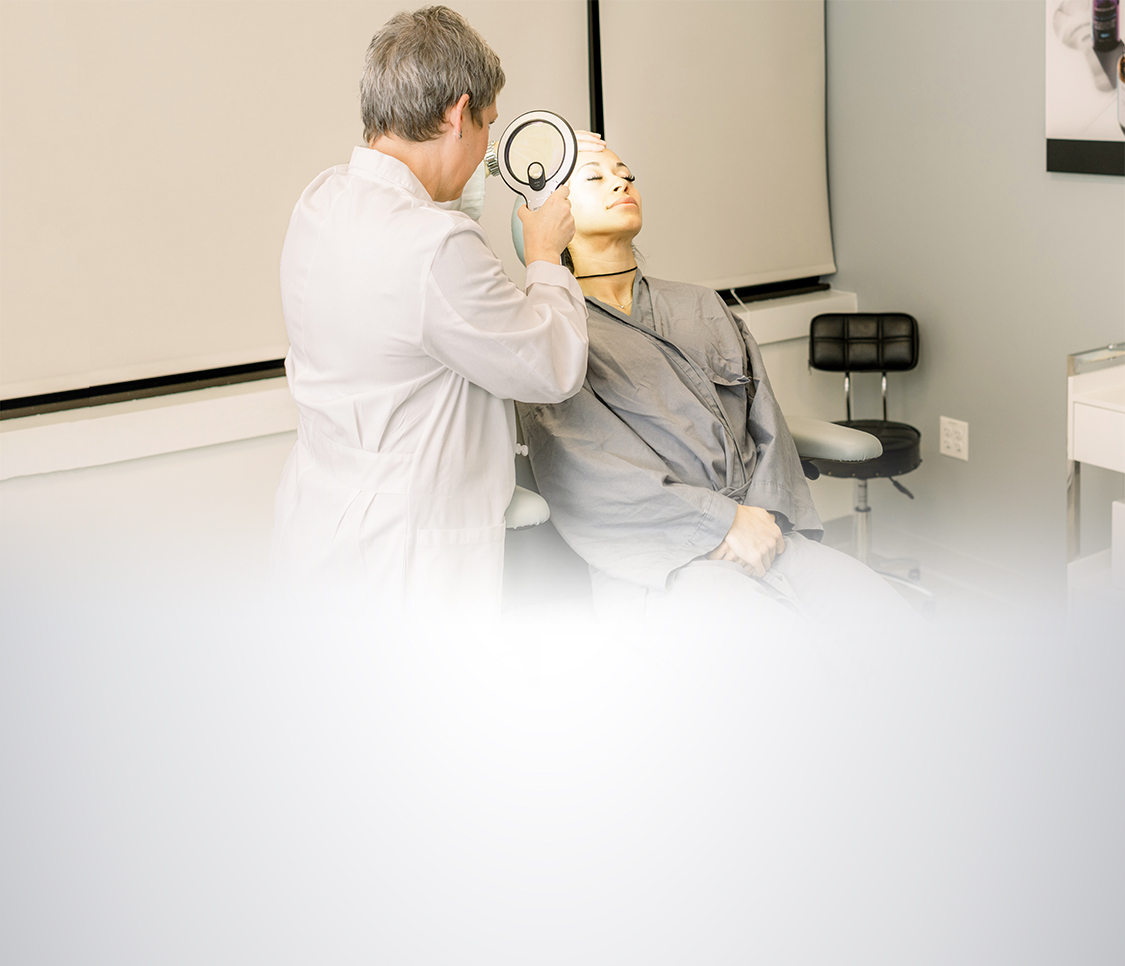The new SPF for skin cancer prevention: Sunscreen, Protective clothing, Fraxel
We all know the term "SPF" as "Sun Protection Factor," a metric that tells us how… Read On


Skin Cancer Evaluation & Treatment
Dermatologists play an essential role in your health. When you visit SkinCare Physicians, we will educate you in prevention of skin cancer and provide advanced treatment options. It’s important to keep in mind that most skin lesions are not cancerous; however, a dermatologist is most qualified to make that determination. For the latest, proven skin cancer treatment options in the Boston area, choose the specialists at SkinCare Physicians.
To schedule your screening or treatment for skin cancer at our center near Boston, request a consultation online at SkinCare Physicians online or call our office at (617) 731-1600 to schedule an appointment.
Cancer is a very frightening word used to describe many very different diseases with many very different prognoses. A cancer simply means that a cell is replicating faster than it normally should. Most cells that make up the body divide and reproduce in an orderly manner at a set slow pace. This allows the body to grow, replace worn-out tissue, and repair injuries. If one of these cells is injured in some way (for example, by the sun in skin cancers) and becomes cancerous, it begins to replicate and divide much more quickly. With the cell dividing more rapidly, the body is unable to process all of the new cells and a mass or ball of these cells is formed. This mass of new cells is called a tumor.
In some tumors, the cells may break away from the mass, travel in the blood or lymphatic stream and set up in another part of the body and continue growing and invading the tissue. This process is called metastasizing, and is associated with the more dangerous forms of cancer. This almost never occurs in basal cell carcinomas (the most common, least dangerous type of cancer) and is rare in squamous cell carcinomas that are smaller than two centimeters in width. Although not common with the majority of melanomas discovered today, melanoma is more likely to metastasize and spread to other parts of the body such as the lungs, liver, and bones than the other common forms of skin cancer.
Although we do not know all of the factors that cause skin cancer, excessive exposure to sunlight is the single most important factor in the formation of skin cancer. Other forms of radiation, such as ultraviolet light therapy or X-ray therapy, may also contribute to the formation of skin cancers. Over time (many years), a normal basal or squamous cell may be transformed into a cancerous cell. As a cancerous cell, it will begin to divide much more rapidly than the body is accustomed to, and a collection of that type of cell will form. This collection of cells is known as a tumor.
Skin cancers occur more frequently in people with fair complexions (blonde hair, blue eyes), individuals of Celtic decent, and those exposed to a more than average amount of sun. Darker skinned individuals, who have more pigment to shield their skin from the harmful rays of the sun, are less likely to form skin cancers. Although the effects of the sun’s rays are cumulative, there is usually many years separating the significant exposure to the sun and the formation of the skin cancer. The majority of sun exposure generally occurs during the teenage and early twenties years, while most skin cancers do not begin to occur until people are in their 40s. The skin never forgets any of the sun it has received.
Early diagnosis and treatment of skin cancer increases the likelihood of curing the cancer. The best way to catch skin cancer at an early stage is to visit us regularly for a full-body skin examination and perform monthly self-examinations. If you become familiar with your skin’s unique “landmarks” such as moles, freckles, and scars, you will be more likely to notice changes. You may need a hand mirror or partner to examine your back and other areas that are difficult to view.
The best way to protect yourself from future skin cancers is to make a serious attempt at reducing the amount of sunlight you are exposed to. An effective way to fight the sun is to put on a daily moisturizer with an SPF of at least 15 in it. Even if you are not planning on being outside very long, every little bit counts and adds up. If you know you will be out in sun, apply a sunscreen with a Sun Protection Factor (SPF) of 30 or greater with good UVA protection (there is presently no numbering scale for this protection). Apply a generous amount of the sunscreen and reapply every two to three hours and after any time in the water. In addition, wear a broad brimmed hat and sunglasses, and reduce your exposure to the sun during the mid-day (10 AM to 3 PM) when the rays are most intense.
You don’t have to change your entire lifestyle, just alter it intelligently and take the proper precautions.
Skin cancers may be effectively treated by several different methods. The most common treatments for basal cell and squamous carcinoma include:
The treatment of each skin cancer must be individualized, taking into account the type, size, and location of the cancer, the patient’s age, and whether or not the cancer has been treated before. Of all forms of treatment for skin cancers, Mohs microscopically controlled surgery has the highest cure rate.
Although skin cancers treated with Mohs surgery are extremely unlikely to recur, an unfortunate statistic is that 50% of people, who develop a basal cell carcinoma, will develop another one within 5 years. That is why it is important to have your skin examined by a dermatologist on a regular basis.
Review our Patients’ Guide to Skin Cancer and Mohs Microscopically Controlled Surgery for detailed information. Download now.